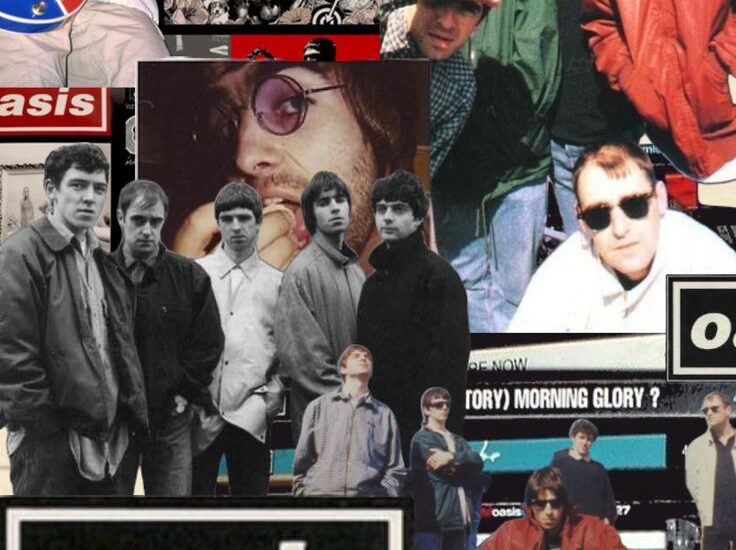
Inspirational Legacy: “Oasis “legacy isn’t just etched in the history of music;
Oasis, one of the most influential bands to emerge from the UK in the 1990s, was not just a music group, but a cultural phenomenon. With their massive success, rebellious spirit, and iconic sound, the Gallagher brothers—Noel and Liam—defined an era that shaped the future of rock and roll. The band’s legacy is often considered more than just the sum of their hits; it’s a powerful reminder of the way music can shape and reflect societal attitudes, while leaving an indelible imprint on popular culture.
The Formation and Rise of Oasis
Oasis was formed in Manchester in 1991, emerging from the vibrant and evolving music scene of the time. Led by Noel Gallagher, who had spent years working in various capacities in the music industry, the band found their lineup after a series of lineup changes. In Liam Gallagher, his younger brother, the band had a charismatic frontman with a voice that was raw, powerful, and instantly recognizable. Together, the Gallagher brothers formed the backbone of what would become one of the most successful rock bands of all time.
The early days of Oasis were filled with energy, chaos, and the kind of rock ‘n’ roll swagger that would become their trademark. The band’s debut album Definitely Maybe (1994) exploded onto the music scene, receiving critical acclaim and commercial success. Its mix of anthemic tracks like “Live Forever” and “Supersonic” captured the spirit of youth and defiance that resonated with a generation looking for an escape from the post-Thatcher recession and the growing disillusionment with political and social issues.
The band’s music was part of the Britpop movement, a genre that dominated the UK during the mid-90s and offered a fresh alternative to the grunge-dominated landscape of American rock at the time. Oasis, with their catchy melodies and working-class ethos, quickly became the poster children of Britpop alongside other acts like Blur and Pulp. The sound of Oasis was deeply rooted in British rock history—drawing from bands like The Beatles, The Rolling Stones, and The Kinks—but with a modern twist that appealed to the youth of the 90s.
Definitely Maybe wasn’t just an album; it was a statement. And by the time their second album, (What’s the Story) Morning Glory? (1995), was released, Oasis was a household name. Tracks like “Wonderwall,” “Champagne Supernova,” and “Don’t Look Back in Anger” became anthems for millions. Morning Glory catapulted the band to global superstardom, propelling them to a place alongside the greats of rock history.
The Gallagher Brothers: Conflict and Charisma
No band, especially one as successful as Oasis, can avoid internal conflict, and Oasis was no different. The tumultuous relationship between Noel and Liam Gallagher—often described as a love-hate brotherhood—was one of the driving forces behind the band’s narrative. Their public feuds, frequently spilling into the press, became as famous as their music itself. These conflicts, combined with Liam’s outspoken and often controversial behavior, gave the band a bad-boy image that was both captivating and problematic. While their infighting created many dramatic headlines, it also fueled their creative output, pushing the band to produce some of the most memorable rock music of the 90s.
Despite their personal differences, the Gallagher brothers were undeniably the creative core of Oasis. Noel was the primary songwriter, responsible for penning the majority of the band’s greatest hits. His gift for melody and his ability to craft songs that tapped into the universal emotions of love, heartbreak, and longing resonated deeply with audiences. Liam, with his distinctive voice and magnetic stage presence, was the perfect frontman to deliver those songs to the world. Together, their on-stage chemistry and off-stage conflict became part of the band’s identity.
The constant tension within Oasis was mirrored in their music, with the raw energy and defiance heard in their songs serving as a reflection of the chaotic dynamics between the two brothers. This combination of creative brilliance and combustible personalities kept fans engaged, even as their personal dramas threatened to tear the band apart.
Oasis’s Cultural Impact
Oasis’s legacy goes beyond their music; it lies in their cultural impact. The band’s rise coincided with the peak of Britpop, a cultural movement that embraced British identity, national pride, and working-class values. Oasis became the embodiment of these ideals. Their music spoke to a generation that was struggling with a sense of belonging and identity in a rapidly changing world. For many young people, Oasis represented the triumph of the underdog—working-class heroes who made it big against all odds.
You may also like
Archives
Categories
- ABA
- Actor
- Actress
- Actress and singer
- Band
- Baseball
- Basketball
- Boxer
- Broadcasting corporation
- CCR
- cricketer
- Cyclists
- Dart
- Drummer
- Fictional character
- Football game
- Formula 1
- Golf
- Guitarist and songwriter
- Guitarists
- Gymnastics
- Hockey
- Ice hockey
- Marathon
- MLB
- Motocross
- MotoGP
- Motorcross
- Musician
- Musician and drummer
- NFL
- NHL
- NRL
- Racer
- Red bull Racing
- Rider
- Rock band
- Rugby league
- Simone Biles
- Singer and songwriter
- Songwriter and musician
- Sport commentator
- Tennis
- Texas longhorns
- Track and field athlete
- Uncategorized
Leave a Reply